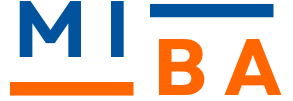For affiliate marketers, consistency is key to building an audience and generating conversions. Having a well-structured weekly content plan helps you stay organized, post regularly, and maximize your engagement.
This template provides a clear outline for creating and scheduling content that resonates with your audience.
Benefits of a Weekly Content Plan
- Consistency: Regular posting keeps your audience engaged and attracts new followers.
- Time Management: With a pre-planned schedule, you save time brainstorming content ideas each day.
- Optimization: Plan content around high-traffic days and times for maximum reach.
Template Overview
This weekly plan divides your content into key categories to maintain variety while promoting your affiliate offers. Here’s how you can structure your week:
Monday: Educational Post
- Content Type: Blog article, video, or social media post explaining how to use a product, why it’s beneficial, or how it solves a common problem.
- Affiliate Goal: Subtly introduce your affiliate product by explaining how it fits into the solution.
- Example: A blog post titled, “How to Get Started with [Affiliate Product]” or “The Top Benefits of Using [Affiliate Product].”
Tuesday: Product Review or Testimonial
- Content Type: A review of a product you’re promoting, highlighting its features, benefits, and personal experience.
- Affiliate Goal: Directly mention your affiliate link or call-to-action (CTA) to encourage sign-ups or purchases.
- Example: “I Tried [Affiliate Product] for 30 Days, Here’s What Happened.”
Wednesday: Social Media Engagement Post
- Content Type: Engage your audience with questions or polls related to their challenges or preferences in your niche.
- Affiliate Goal: This post is to boost engagement and foster trust without directly pushing affiliate products.
- Example: “What’s your biggest challenge with [niche topic]?”
Thursday: How-To Tutorial or Tips
- Content Type: Share tips or tutorials that educate your audience about a problem they face, with the affiliate product serving as a part of the solution.
- Affiliate Goal: Create a natural link between the problem and your product, positioning it as a must-have.
- Example: “3 Easy Steps to [Desired Outcome] with [Affiliate Product].”
Friday: Promotional Post
- Content Type: Special offers, discounts, or limited-time promotions for the affiliate product.
- Affiliate Goal: Use scarcity or urgency to encourage your audience to take action.
- Example: “Flash Sale! Get [Affiliate Product] at 20% Off This Weekend Only!”
Saturday: Behind-the-Scenes or Personal Story
- Content Type: Share personal anecdotes or behind-the-scenes content to build a stronger connection with your audience.
- Affiliate Goal: Mention how your journey with the affiliate product has benefited you, but keep the focus on storytelling.
- Example: “How I Started Using [Affiliate Product] to Solve [Problem].”
Sunday: Round-Up Post or Q&A
- Content Type: A recap of the week’s content, or an audience-driven Q&A session where you answer questions related to the affiliate product or niche.
- Affiliate Goal: Provide direct answers and link to the affiliate product for more information.
- Example: “This Week’s Highlights: Everything You Need to Know About [Affiliate Product].”
Pro Tips for Success:
- Automate Content Posting: Use social media management tools like Buffer or Hootsuite to schedule your posts in advance.
- Monitor Performance: Track engagement and conversions using analytics to identify which types of content work best for your audience.
- Vary Content: Mix up formats (blog posts, videos, polls) to keep your audience interested and coming back for more.
This weekly content plan template helps keep your affiliate marketing strategy on track while giving your audience consistent, valuable content. Use it as a foundation, and adjust based on your specific goals, audience behavior, and niche.
